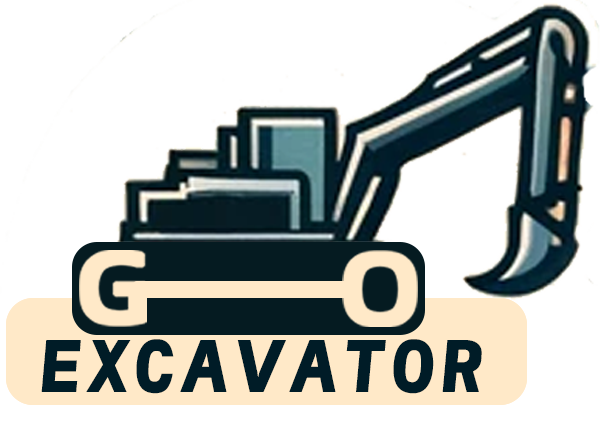
Compact excavators, also known as mini excavators, are versatile and efficient pieces of machinery widely used across various industries. Their design and size offer significant advantages over their larger counterparts, making them ideal for a range of applications. This article delves into the benefits of using compact excavators and explores the specific scenarios where they excel.
Understanding Compact Excavators
Definition and Features
A compact excavator is a smaller version of a standard excavator, designed for its maneuverability and ability to work in confined spaces. These machines typically weigh between 1 to 10 tons and are characterized by their compact dimensions, reduced tail swing, and versatile attachments.
Key Components
- Engine: Provides efficient power while maintaining a low environmental impact.
- Hydraulic System: Enables smooth operation of the boom, arm, and bucket.
- Tracks: Rubber or steel tracks allow for stability and mobility across various terrains.

Advantages of Compact Excavators
Enhanced Maneuverability
Compact excavators are renowned for their ability to operate in tight spaces where larger excavators cannot fit. This is particularly advantageous in urban or residential areas with limited operating room.
Reduced Operational Costs
Fuel Efficiency
Compact excavators are designed to consume less fuel than larger machines, which not only reduces operating costs but also minimizes environmental impact.
Maintenance
Due to their simpler design and smaller size, maintenance costs for compact excavators are generally lower, making them an economical choice for small to medium-sized projects.
Ease of Transportation
The small size and lighter weight of compact excavators make them easy to transport on trailers pulled by standard pickup trucks. This facilitates quick movement between job sites, increasing overall project efficiency.
Versatility
Compact excavators can be fitted with various attachments, such as buckets of different sizes, breakers, or augers, making them suitable for multiple tasks, from digging and trenching to demolition and drilling.
Optimal Work Scenarios for Compact Excavators
Residential and Urban Construction
Landscaping
Compact excavators are perfect for landscaping projects in residential yards or parks where space is restricted. They can dig ponds, shape landscapes, and plant trees with minimal disturbance to the surrounding area.
Utility Repairs
In urban settings, compact excavators are ideal for performing utility repairs that require digging in confined spaces near roads or between buildings.
Agriculture
Farm Management
Farmers can use compact excavators for tasks such as building small ponds, cleaning barn areas, and general farm maintenance.
Fencing
The installation of fencing, particularly in rough terrain, is simplified by the maneuverability and power of compact excavators.
Forestry
Trail Building and Maintenance
Compact excavators are used in forestry for building and maintaining trails. Their ability to maneuver in wooded areas makes them indispensable for such tasks.
Demolition and Recycling
Indoor Demolition
Due to their compact size, these excavators can work inside buildings, making them excellent for indoor demolition tasks where larger machines cannot operate.
Home Renovations
Pool Installation
Compact excavators can dig swimming pools in backyards where larger machinery would be too disruptive and might damage property.
Compact excavators offer a blend of efficiency, versatility, and cost-effectiveness, making them a valuable asset in various industries. From urban construction and landscaping to agriculture and indoor demolition, these machines provide practical solutions to complex problems, particularly in confined spaces. Their ability to adapt to different tasks with various attachments and their ease of transportation underline their utility and wide-ranging applicability. Whether for commercial or personal projects, compact excavators are an excellent choice for those seeking to maximize productivity without the overhead of larger, more cumbersome equipment.
A Comprehensive Guide to Buying a Excavator Second Hand
Purchasing a second-hand excavator can be a cost-effective solution for your construction or landscaping needs. However, buying used machinery comes with its own set of challenges and considerations. This comprehensive guide will walk you through [...]
Comprehensive Guide to Hyundai Mini Excavators: Features and Prices
Mini excavators have become indispensable tools in the construction and landscaping industries. Hyundai Construction Equipment, a global leader in heavy machinery, offers a range of mini excavators known for their reliability, efficiency, and advanced features. [...]
How to Extend the Service Life of Excavator Parts
Excavators are indispensable machines in the construction and mining industries. They perform heavy-duty tasks that demand robust components and meticulous maintenance. Extending the service life of excavator parts not only reduces operational costs but enhances [...]
Kymron Excavators: Innovative, Sustainable Construction Machinery
In the dynamic world of construction and heavy machinery, Kymron has emerged as a game-changer. Specializing in advanced excavator technology, Kymron is redefining industry standards with its commitment to innovation, efficiency, and sustainability. Company Overview [...]
Bulldozer vs. Wheeled Excavator: Which Machine is Better for Moving Soil?
Moving soil is a fundamental task in construction, landscaping, and earthmoving projects. Choosing the right machinery for the job can significantly impact efficiency, cost, and project timelines. Two of the most commonly used machines for [...]
Why Are Small Excavators Favored? A Comprehensive Guide
In the world of construction and landscaping, efficiency and versatility are key. Among the myriad of machinery available, small excavators have risen in popularity. But what makes them so favored? Introduction to Small Excavators Small [...]




